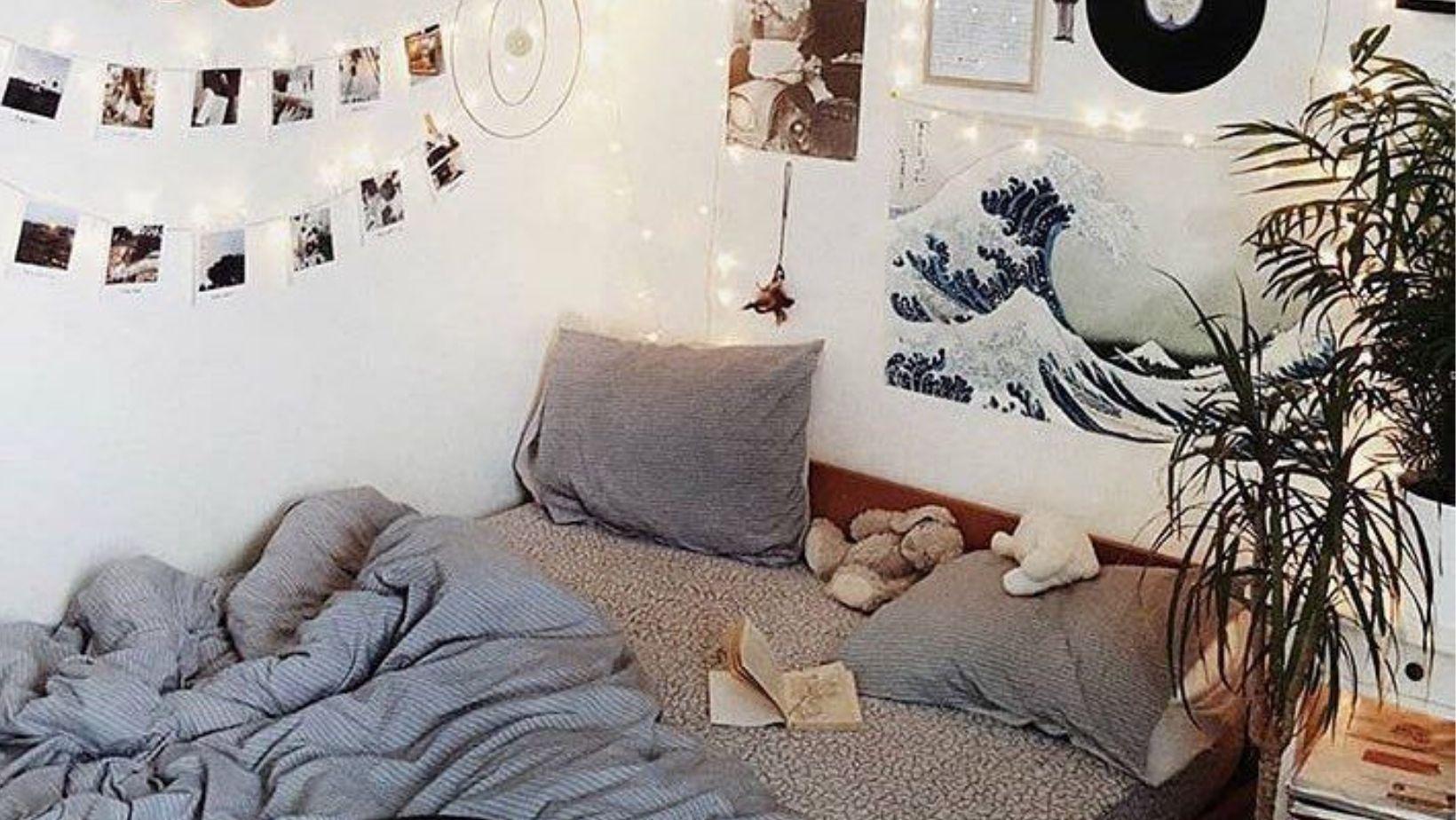Types of student accommodation: your options explained
31 May 2022 • 10 min read
If you’re a first year student starting in September or you’re already at uni and you’re looking for accommodation for next year, it can be difficult to know what your options are when it comes to accommodation.
Where should you live? Who should you live with? What types of accommodation are available? These are all questions you might have and we’re here to help you answer them.
Whether you’re in first, second or third year, you can choose from a number of different types of student accommodation, each of which comes with its own good bits and bad bits. Let’s have a look at the types available and how you can choose the right option for you.
We've covered:
● University halls of residence 🎓
● Privately rented houses and rooms 🏠
● Private halls or purpose built student accommodation 🌆
● Living at home 🏡
1. University halls of residence 🎓
University halls are most popular with first year students who want to be close to campus, meet new people and get involved in a range of social activities.
These are managed by the university and you will have your own bedroom but you will share communal areas such as the kitchen and bathroom (unless you opt for an en-suite room!).
Student halls are usually located on or very near to campus which means they’re in high demand. Remember that, due to their popularity, you might not get your first choice of room or location in this type of accommodation. You don’t get to choose who you live with when you opt for student halls, which is great in your first year when you’re looking to make new friends but you might want to live with a select group of friends in your second and third year.
Living in halls is great in your first year because they offer great socialising opportunities and will help you to find the people you might want to live with next year. If you decide to move into private accommodation in your second year, you will ideally need to decide who you want to live with before Christmas so that you can view houses and sign a contract ready for the following September.
Halls of residence can be catered or self catered and this will affect the kitchen facilities you have access to. Catered accommodation is not as popular as it once was but it means you avoid having to budget for food shopping, cooking and washing up.
What’s good about living in student halls?
● They’re a great way to make the move between living at home and being completely independent - you won’t have to deal with bills or landlords!
● There’s extra support available from your uni if you need it
● Most university halls are located close to campus so you won’t have to commute to get to your lectures or social events
● It makes it much easier to meet new people and make friends
What are the downsides to choosing halls of residence?
● Popular and in high demand with first year students so you may not get your first choice of accommodation
● Many universities reserve spaces for first year or international students
● There might be strict rules on keeping fire doors closed or quiet hours and you could be penalised for not following the rules
● Fire alarms might mean everyone has to evacuate the block if someone burns their toast after a night out!
● You don’t get to choose who you live with
● They can be noisy with lots of first year students living together
2. Privately rented properties 🏠
These are houses, flats or apartments owned by private landlords and are the most popular types of accommodation chosen by students in the second or third year when moving out of student halls. It’s much easier to decide which area you want to live in when you’ve already been living in the city for a few months.
However, not all universities will have enough space within student halls for everyone so this might be something you need to consider in your first year. If this happens to you, your uni should be able to help you find somewhere and will usually have an approved list of properties that they use regularly. They might also be able to help you find suitable housemates too!
You will usually share with a group of housemates, depending on the size of your group and the size of the property you’re looking to rent. Property sizes range from one bedroom through to ten and eleven bedrooms so there’s definitely something for everyone!
These student homes are usually located within popular student areas of the city you live in but, depending on where you go to uni, they can be dotted all over the city. You might not have the benefit of living on campus but you might be able to enjoy living closer to town and living within your local community.
If you decide to rent privately, the quality of properties can be vastly different so it’s important to look at accredited landlords or organisations who can help you find suitable accommodation. At UniHomes, we make searching for your dream student home as easy as possible. We provide the student houses through our approved landlords and bills are included within every single one of our properties so that’s one less thing you have to worry about!
What’s good about renting privately?
● You can choose exactly who you want to live with, where you want to live and the type of property you live in
● You’ll have complete freedom and independence
● You have more freedom to decorate your room and move things around to suit you - before you do this, just check your tenancy agreement so you don’t lose your deposit!
● Live as close or as far away from campus as you want, or live centrally near your local nightlife so you don’t have to budget for taxis on a night out
What are the downsides to living in privately rented accommodation?
● You might have to budget and balance rent and bills separately - but not if you choose a home with bills included! You can also look into utilities packages or bill splitting services to help take the stress out of managing your bills!
● You might need to walk to campus or rely on public transport, depending on the location of your house
● There’s no cleaner to help with cleaning common areas - it’s all down to you and your housemates!
● You will have to deal directly with your landlords and sort out any problems that arise
3. Private halls or purpose built student accommodation 🌆
Private halls of residence are similar to university accommodation and are purpose built for students but they are owned, run and managed by private companies, rather than your university. They’re usually based in the city centre and provide everything you need to fully enjoy being a student.
They’re not usually located on campus but this type of accommodation is more likely to be closer to shops, eateries and nightclubs so everything you need is on your doorstep. It might just be a small commute to campus, depending on where you’re studying.
Compared to university student halls, you might find a much wider choice of rooms, as well as studio apartments where you can enjoy full use of your own kitchen and bathroom. In other room types, you’ll have your own room and just share communal areas. You might even be able to find halls with extra facilities such as a sauna or cinema room but these will probably be more expensive!
What’s good about living in private halls?
● This type of accommodation is purpose built and provides a much wider range of room types
● You might find more amenities such as gyms, games rooms, cinema rooms and saunas included
● Bills such as utilities, broadband, contents insurance, maintenance and cleaning are usually included so you don’t need to worry about budgeting for these
● You will get to meet lots of different people who might not all be from the same uni
What are the downsides to living in private halls?
● These can often be the most expensive accommodation option so make sure your student loan or other funding will cover your rent here
● Private halls cater to students from all over the city so you might not be living with people that you’re studying with
● Just like uni halls, they can be noisy to live in
● You don’t get any say over the people you live with
● Living off campus might leave you with FOMO when people on your course live in the same place
4. Living at home 🏡
The majority of students choose to live away from home and away from their hometown when going to uni to make the most of the student experience. However, you might choose to stay at home when you’re studying either for financial reasons or through personal choice.
For students who are looking to commute into or study in London, living at home with your parents can be the best option due to the cost of accommodation and living in the capital. Whatever the reason you choose to live at home, there are still pros and cons to doing so.
What’s good about living at home for uni?
● It’s the cheapest option, even if you choose to pay rent to your parents or contribute to food or bills
● You have your own space to go back to at the end of the day
● You don’t have to worry about budgeting for bills or dealing with a landlord
● You won’t feel homesick and will have a support system in place
What are the downsides to living at home?
● You will have to make more of an effort to meet new people at uni, whether it’s through your lectures or attending social activities
● If you have a long commute, you will need to factor in commute times and travel costs. Commuting can also affect your ability to be able to get involved with social activities or nights out
● You will not have as much independence
● The uni you choose will be restricted to where your parents live
If you’re looking to rent privately, take a look at our full range of student homes around the UK. All bills are included and we make finding your dream student home as easy as possible.




